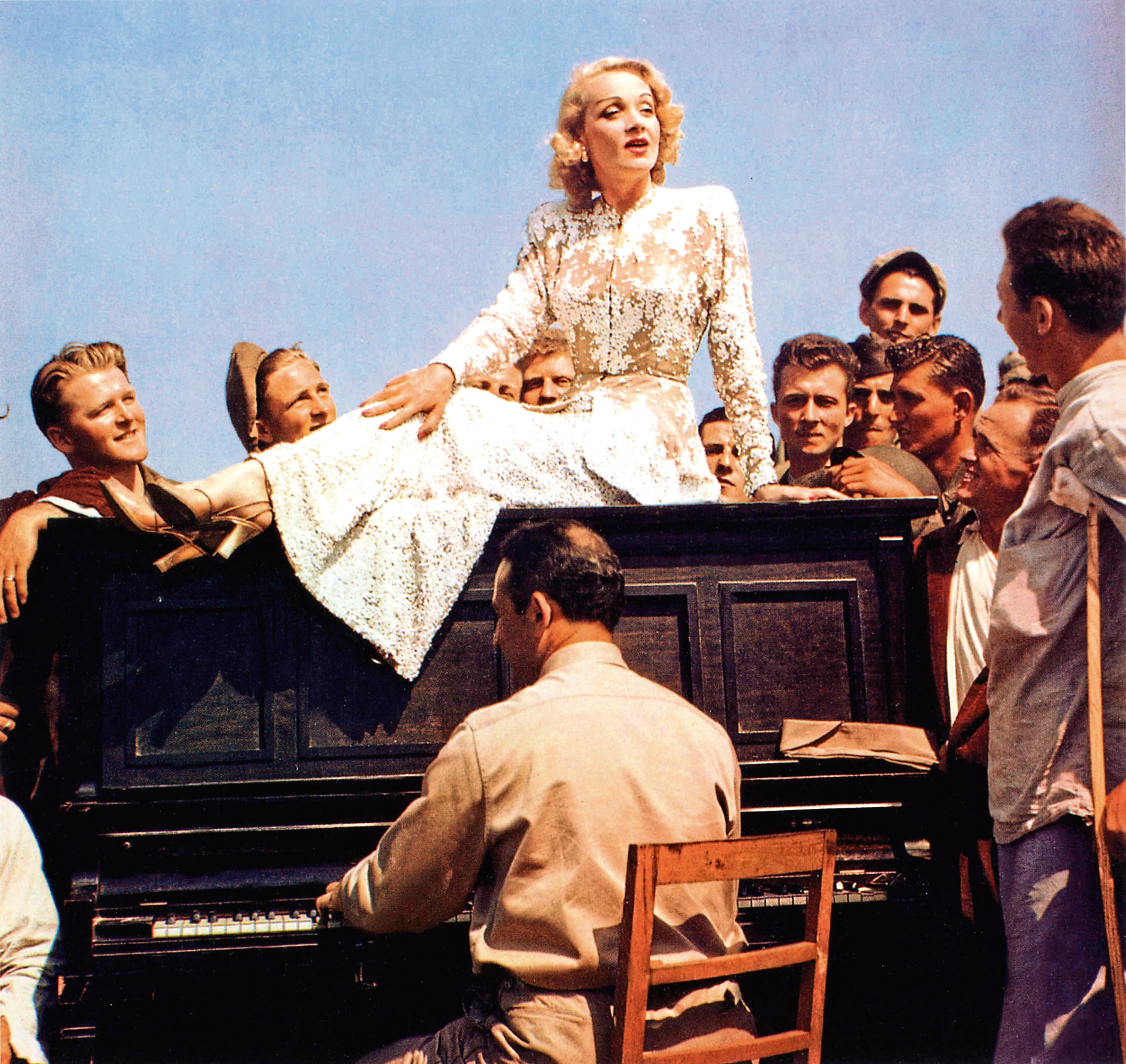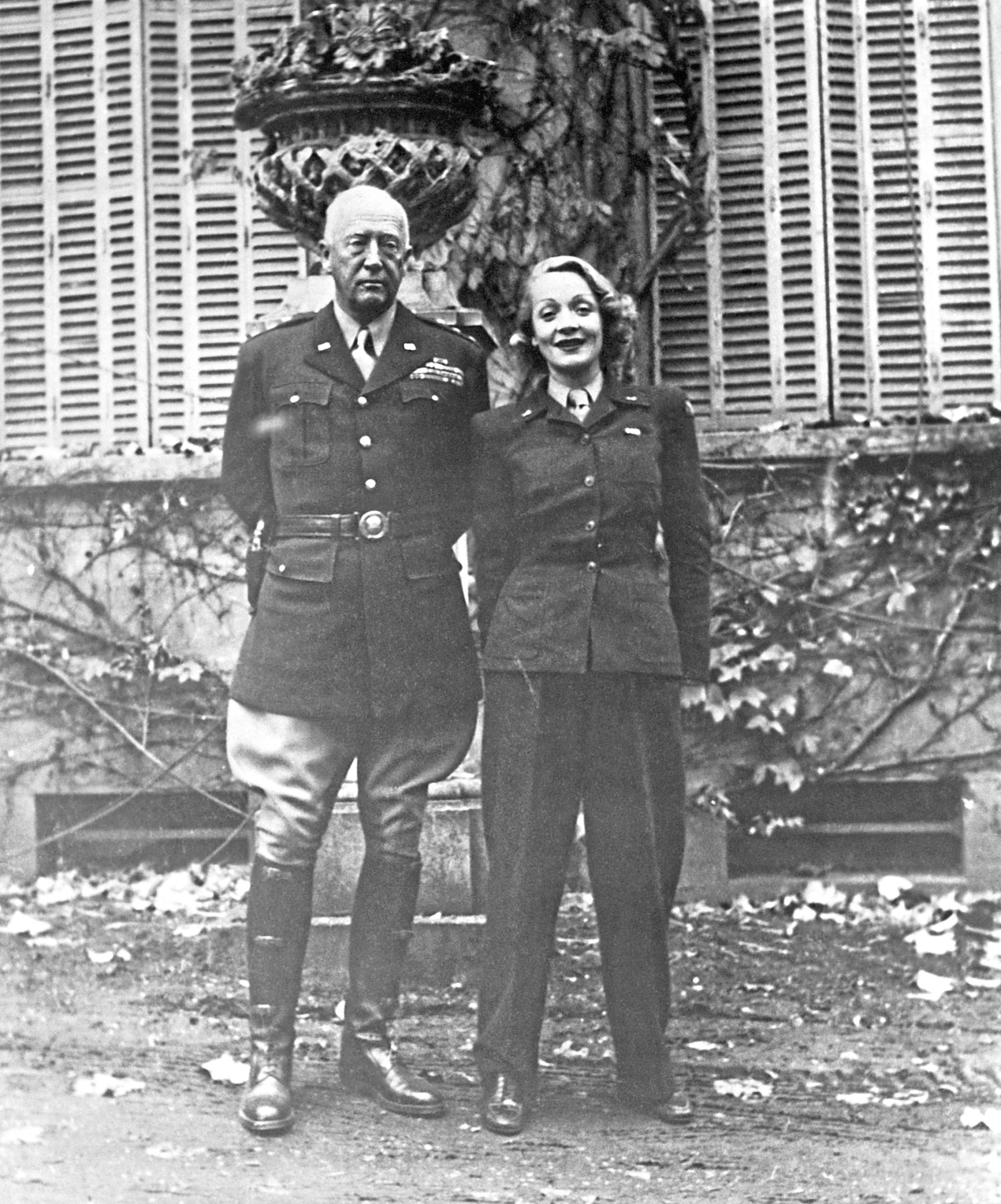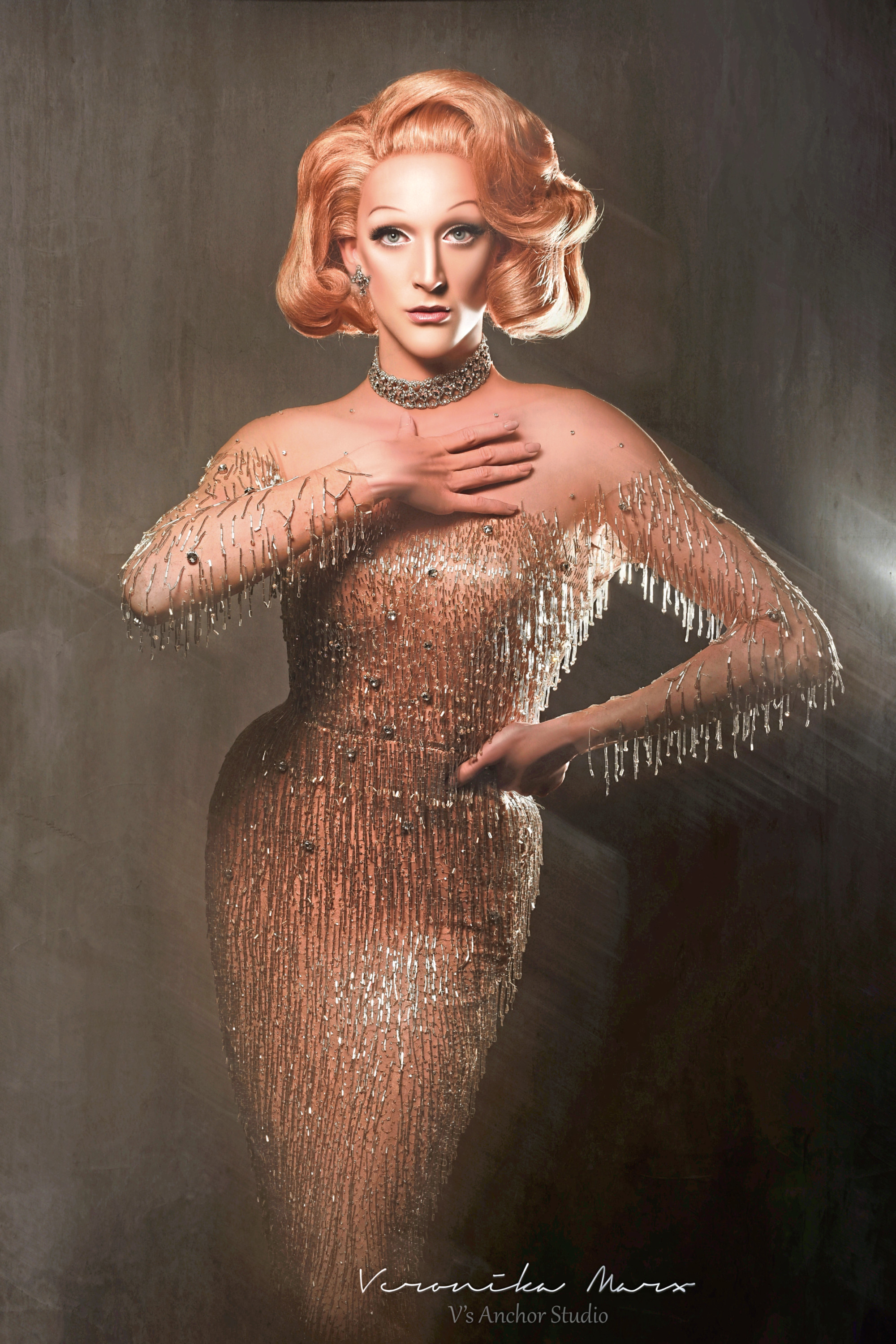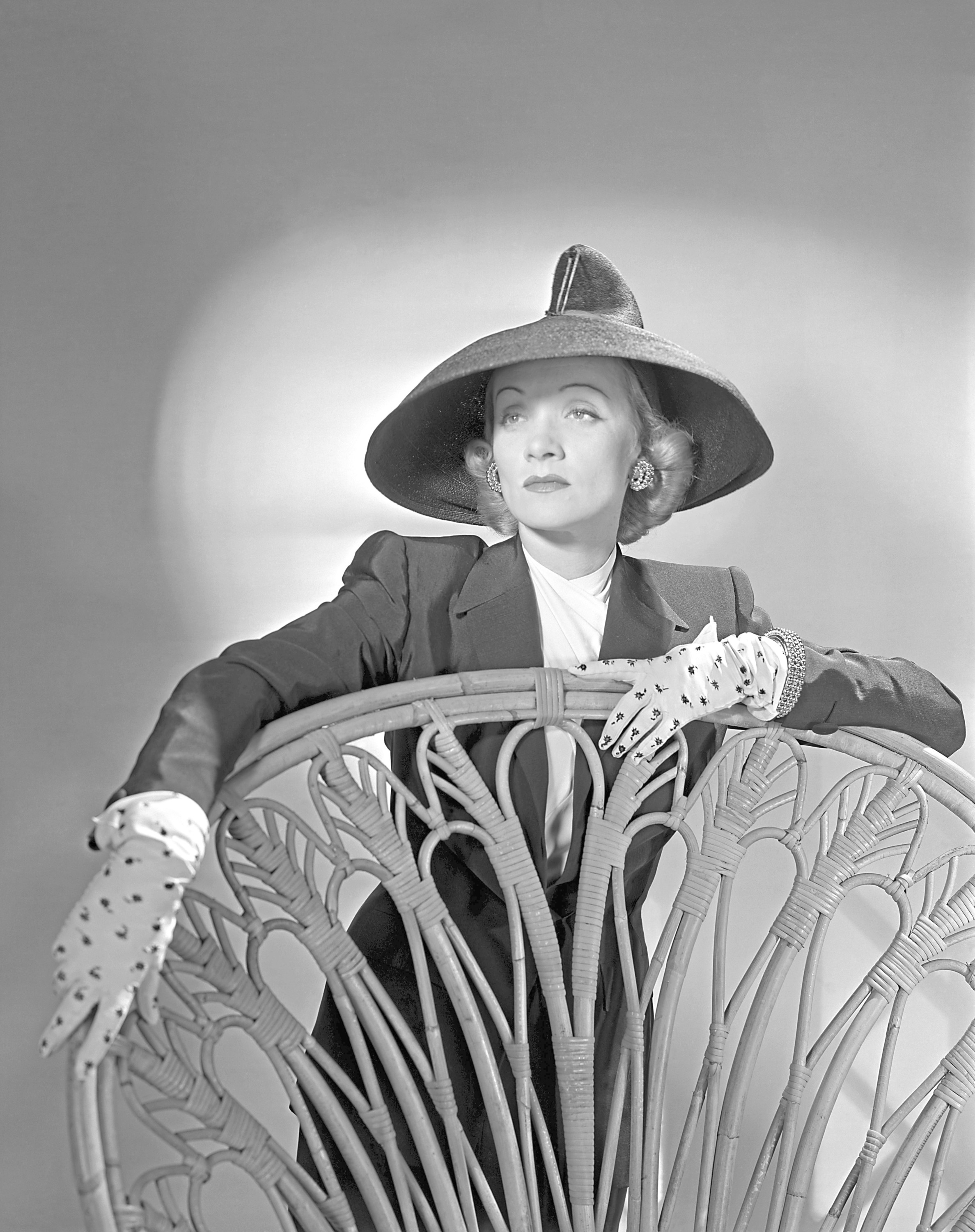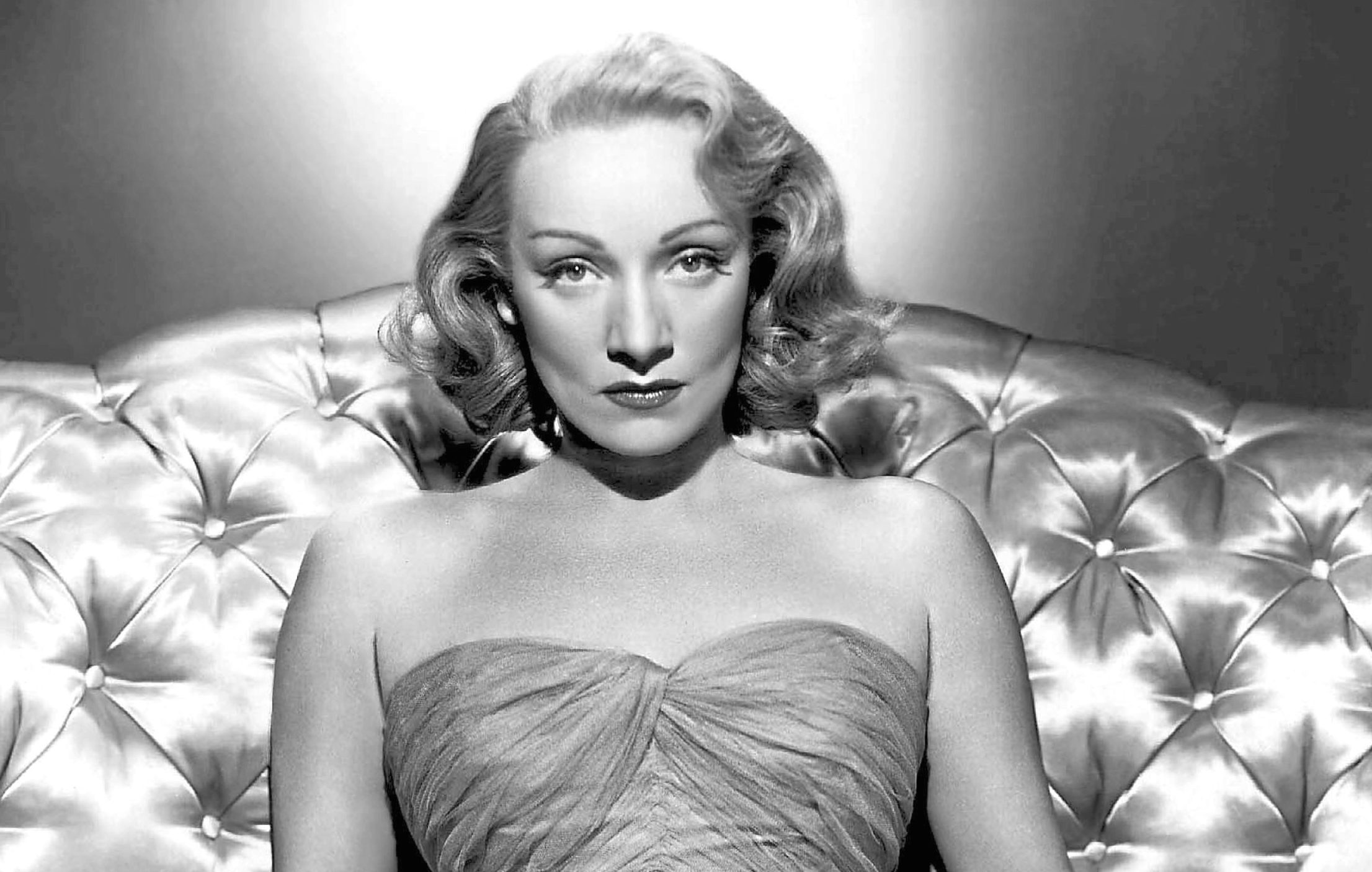
THE wonder of Marlene Dietrich is about to be explained to a whole new generation.
And for the many who know her already, Peter Groom is set to reveal a part of her life that demonstrates just what an extraordinary woman she really was.
In 1942, with her own mother still in Berlin, the actress and singer began her own personal battle against the Third Reich.
Dietrich despised Hitler, and she would appear on the battlefields of North Africa, in elegant sequinned gowns, entertaining Allied troops, raising morale, offering humour, song and glamour, and showing exactly whose side she was on.
Now, Peter becomes Marlene for his Natural Duty show that wowed Edinburgh Fringe crowds, before he took it around the globe.
“Marlene had tried, before the war, to get her mother out,” Peter explains. “But I think her mother was of the opinion, ‘I’ve already lived through one war and the Depression, and this guy is not going to move me, so I’m staying in Berlin.’
“Of course, she didn’t know the extremity of what would happen.
“Marlene was very keen to visit the troops, being staunchly anti-fascist, and had already done a lot of work to help refugees leaving Berlin.
“A lot of money she made in Hollywood, she used to get people out, into Paris. She got them food and a passage to America, where she would vouch for them.”
Peter became a Dietrich expert without even trying – he also owns some very special Marlene items, and finds it easy to become her during his astonishing shows.
“It comes quite naturally,” he says. “I sort of did a lot of studying of her without even realising it, because I had liked her for many years.
“When it came time to do a show about her, I already had an angle I was interested in. I was about 14 when I listened to Vogue by Madonna, and at the end of the song she lists all these Hollywood people.
“I went to the library to look them all up, and I was drawn to Marlene’s picture.
“She was ahead of her time, in one way incredibly provocative, coming out in the tie and tails, playing with gender and the fun to be had with that, which is very popular now.
“But there is another part of her that was incredibly Prussian, very turn-of-the-century, with values of discipline and duty. And she took that mix into Hollywood.
“Marlene was very complex. She took that Prussian discipline into the war and used it against the Germans – this thing she had got from the very upbringing that had driven her away from Germany!”
All of which might make you wonder what battle-hardened, exhausted and homesick soldiers in the desert would have made of it all.
Peter is in no doubt.
“On the frontline, they loved it,” he says. “She was one of the few entertainers that went right to the front. Usually they stayed back in camps, but she insisted she push forward and be alongside them.
“She really lived with them, and I think she understood as the most famous German woman of that time that it was important to say, ‘I am German, but I’m with you because you are right in this war.’
“By that time, she had already changed her citizenship from German to American.”
Peter has to balance being accurate historically with the amount of dramatic effect he can add to the mix.
And he is well aware that, while the Allied side loved Dietrich, many Germans never forgave her.
“I think there’s a certain level of history that needs to be precise in order for the story to be told,” he points out. “But at its simplest it’s about a German girl who becomes a huge Hollywood star and then the place she came from changes.
“She has a choice to make, about whether she chooses where she’s from or what she believes is right. In our current political climate, with Trump and Brexit, people have to make choices, too.”
Peter has found that meeting Germans from his audience is often a fascinating encounter, as you can imagine.
“The most touching thing is when older German people come,” he says, “and I have to remind myself that it’s not a story, it was real. To those people, it was very real.
“They come up after shows or send me messages. There’s a part where I sing in German, and I ask if there are any Germans in the audience, and sometimes someone will say something back.
“I don’t know how it would go down in Berlin. I do know that in the early 90s they tried to name a big street in Berlin after Marlene, and there were protests.
“There is a little square there now, Marlene Dietrich Platz, and I think they would welcome it.
“She said an interesting thing once: ‘I understand it, but I never hated Germany, I hated Hitler. It was never about Germans.’
“Actually, her influences were Mann, Goethe, Grass. There was a rich German history of poetry and music, and for it to then be changed by Hitler, she hated that.”
One of Peter’s closest links to Marlene is, believe it or not, her old doorknobs!
“I was in a show and talking to a few people who said it might be cool to do a show about her. After my show, a woman asked how I got into drag, and I told her I really liked Marlene Dietrich.
“‘Oh, I knew her daughter!’ she said. It turned out her daughter had lived in London, and the grandchildren played together. Marlene also had a house in London.
“When she died, her daughter Maria had all this stuff and asked this woman, Sally, if she would like anything. Sally took these doorknobs from Marlene’s bedroom door.
“Then she just asked me if I wanted them. Yes, please! They are in my make-up drawer, so every time I make up for the show I see them right there in the corner.
“If Marlene could see this show, she would hate it! She would find it ridiculous, and she would think ‘No-one could be me like me.’
“I think Marlene dressing like a man and having that knowing look in her eye was all about suggestion. She also had this incredible ability to reinvent ‘Dietrich’, which is how she referred to herself.
“Dietrich to her was The Thing, and she could go down a line of dresses and say, ‘Yes, that’s Dietrich, no, that’s not, yes, that is.’ She understood the product side of it all.
“And she managed to reinvent that ‘product’ for 60 years.”
Peter notes: “She did tour Germany eventually, in the 1960s, and it did well in some places. But in the Rhineland there was a kind of silent boycott. People didn’t go, and there were signs saying, ‘Marlene, go home, you’re a traitor here.’”
To the soldiers in the desert, the truth was exactly the opposite.
Peter Groom’s critically-acclaimed Dietrich Natural Duty launches its world tour at London’s Wilton’s Music Hall, the world’s oldest Grand Music Hall, November 19-26.


Enjoy the convenience of having The Sunday Post delivered as a digital ePaper straight to your smartphone, tablet or computer.
Subscribe for only £5.49 a month and enjoy all the benefits of the printed paper as a digital replica.
Subscribe